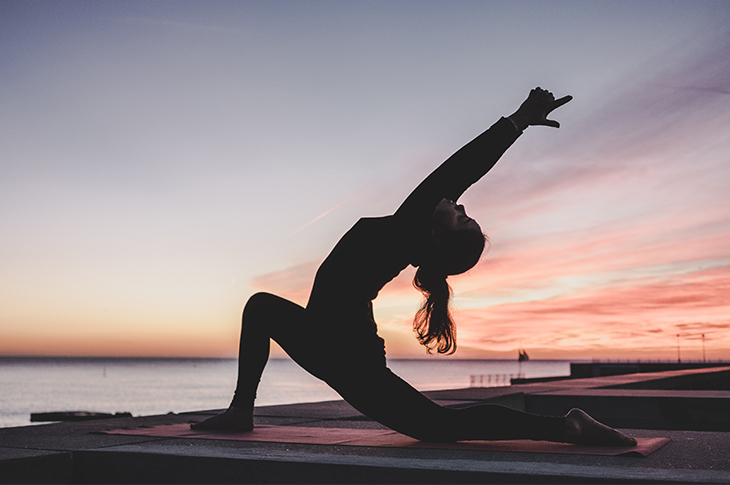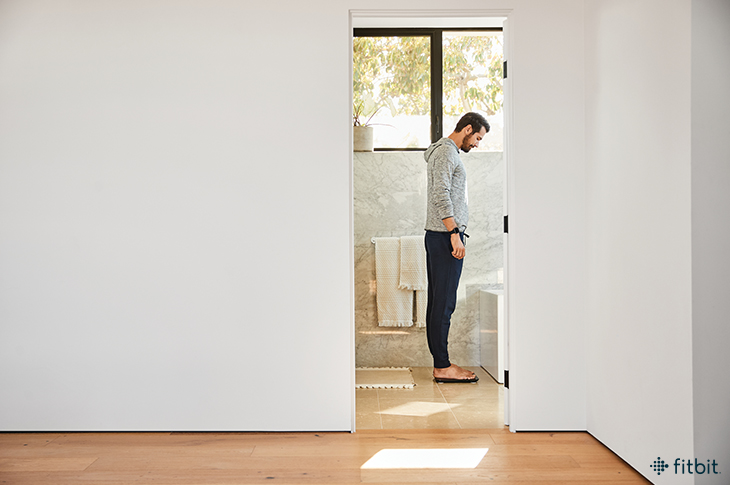Working from home presents a unique set of challenges. You may have been a total newbie to this new normal, making it tough to navigate the distractions that come up and maintain focus. These issues are natural and to be expected in this unprecedented time, so give yourself space to experiment and adapt to your new work environment. Here are some tips from a Fitbit health coach to help keep you laser-focused, feeling great, and fend off burnout.
Refuel regularly with real food. Your circadian rhythm naturally takes a dip in the midafternoon, and if you are without the extra stimulation of coworkers and the energy of office life, it’s easy to really feel that afternoon slump. Irregular meals and eating too many processed carbs or sugary foods can lead to unstable blood glucose levels and exacerbate your post-lunch energy crash. And new research suggests eating just one fatty meal can affect your concentration.
So, fuel your body and your brain by eating regular balanced meals and snacks that are rich in protein, healthy carbohydrates, and a small amount of healthy fats.
Have a dedicated workspace. During this unique time, you may still be working from home without a real home office. Although it may be tempting to simply roll over in bed and grab your laptop, it’s not doing your body any favors.
Creating a dedicated workspace can help you avoid neck and back pain, as well as minimize distractions. If you don’t have an extra room to use as an office, no problem, create a workspace at your dining table, or maybe set up a desk in an unused corner. Moving to your workspace when you’re getting started for the day can help keep you focused and avoid the temptation to watch TV, take a midday nap, or tackle that pile of laundry.
Keep a schedule. You may find you’re working longer hours since being stuck at home. The lines between work life and personal life may have become blurred, which can lead to the feeling you should be constantly working or thinking about work, even outside of your normal nine to five. Setting boundaries is important and will allow you to focus on work when you need to, be present with your family, and get rest and relaxation after you clock out.
Stay hydrated. Do you forget to drink water while you’re working? Researchers have found that even minor dehydration can impair your memory and cognitive function. Fatigue and brain fog are common symptoms of dehydration. So, try to ensure you’re consuming the recommended 64 ounces of water a day. Set up a silent alarm on your Fitbit device to remind you to hydrate often. You can also log your water intake right in the Fitbit app or on your device to make sure you’re drinking enough.
Don’t like the taste of plain water? Check out some of these ideas to spice things up. Or sip on a cup of tea instead, which can help you feel relaxed, but alert.
Opt for fresh air instead of an extra cup of coffee. Loading up on multiple cups of coffee can be tempting when you’re trying to stay focused, but too much caffeine can lead to a big energy crash later in the day. Instead of reaching for that extra cup, take a break and step outside if you can. Getting fresh air and exposing yourself to sunlight can give you a boost to power you through the rest of your day. If you can’t go outside, simply opening a window and taking a few deep breaths may give you the extra energy to refocus your mind.
Take regular breaks. While you may feel tempted to stay chained to your desk, taking regular breaks can help to boost your productivity and keep your energy levels up. Use your Fitbit device’s reminders to move to make sure you’re getting up and taking 250 steps each hour as a surefire way to keep moving throughout the day.
This information is for educational purposes only and is not intended as a substitute for medical diagnosis or treatment. You should not use this information to diagnose or treat a health problem or condition. Always check with your doctor before changing your diet, altering your sleep habits, taking supplements, or starting a new fitness routine.
Source link: https://blog.fitbit.com/stay-focused-prevent-burnout/ by Miranda Canfield at blog.fitbit.com














